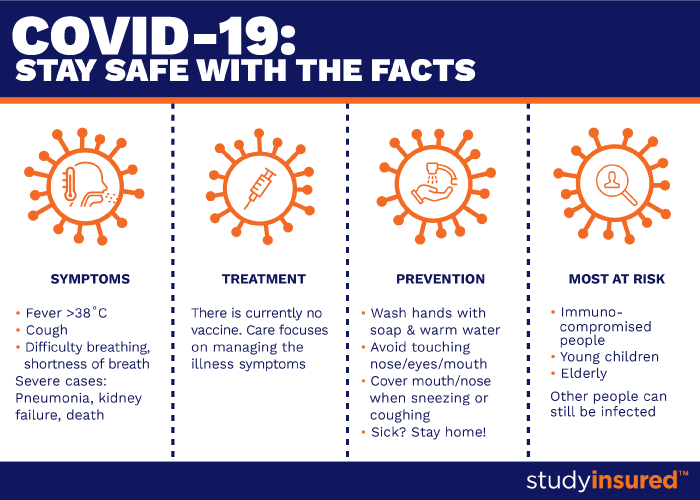from the MSH Americas Medical Team
WHAT IS COVID-19?
COVID-19 is a strain of coronavirus that has not been previously identified in humans.
CORONAVIRUSES are a family of viruses causing illness ranging from the common cold to more serious diseases such as Middle East Respiratory Synrdome (MERS-CoV), Severe Acute Respiratory Syndrome (SARS-CoV), and COVID-19 (2019-nCoV).
Coronaviruses are transmitted between animals and humans. SARS was first transmitted to humans from civet cats; MERS was transmitted to humans by dromedary camels.
WHAT ARE THE SYMPTOMS?
Common symptoms are:
- Fever over 38°C
- Cough
- Shortness of breath / difficulty breathing
In more severe cases, infection can cause pneumonia, kidney failure, and even death.
HOW IS IT SPREAD?
COVID-19 is transmitted from person to person by respiratory droplets from coughing or sneezing. These droplets can be inhaled if you are in close contact with an infected person. Touching objects or surfaces with respiratory droplets on them and then touching your mouth, nose, or eyes can also spread the virus.
The time between exposure to the virus and the onset of symptoms is between 5 and 14 days, so the appropriate quarantine period for an individual exposed to COVID-19 is 14 days.
HOW IS IT TREATED?
There is currently no vaccine for COVID-19. Medical care is focused on managing symptoms, by getting lots of rest, drinking plenty of fluids, and treating the fever.
PREVENTION IS KEY
- Wash your hands thoroughly with soap and warm water
- Cover your mouth and nose when sneezing or coughing, and/or sneeze or cough into a tissue
- Avoid touching your eyes, nose, and mouth
- Avoid close contact with anyone showing symptoms of respiratory illness such as coughing or sneezing
- Stay home if you are sick. Do not use public transportation or taxis. Do not go to work, school, or other public places.
- If you have symptoms, avoid travel, particularly flying, and seek medical attention as soon as possible.
If you are travelling to an area known to have cases of COVID-19, avoid:
- High-risk areas such as farms, live animal markets, and areas where animals may be slaughtered
- Contact with animals (live or dead), including pigs, chickens, ducks, and wild birds
- Surfaces with animal droppings or secretions on them
If you have or may have COVID-19, please refer to this link for more guidelines on preventing the spread of infection.

